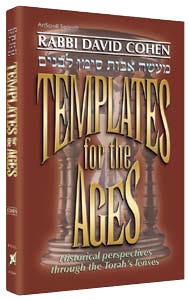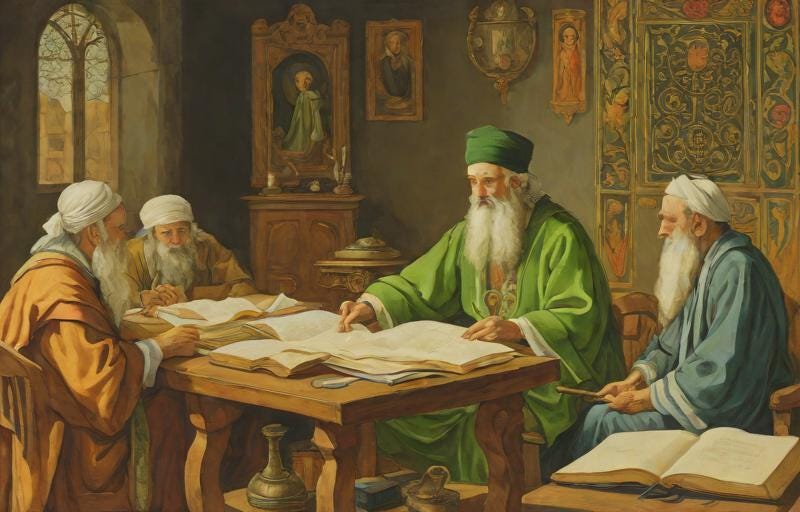Against Biography and for Hagiography
The "Making of a Gadol" vs. "The aspiration towards Great Actions"
The Question
Growing up, we read “Artscroll Biographies”, academically known as “Haredi Hagiography”.
Growing up, we criticize these as over-idealizing their subjects. We begin valuing another style that calls itself just plain “Biography”, or maybe “Neutral Unbiased Biography”.
There are two distinct criticisms against the first type.
One criticism is from historical truth. “Did you know that Rabbi so-and-so wasn’t really as perfect as the book says, he also made some mistakes and such. Here, read “The Making of A Gadol” and you’ll see the facts”.
Another criticism is from educational value. “How can I learn anything from a supposedly perfect human, with no struggles or conflicts I can identify with. Here, read Rav Hutner’s letter about this”.
If you believe only the first criticism, but think that for educational value we should idealize the stories, you are a Standard Smart Haredi TM
If you believe also the second criticism, you are Officially Oifgeklert TM.
If you wonder about all this, and feel there is still something we don’t understand here, this essay is for you.
You are probably be broad-minded enough to notice that Artscroll didn’t invent hagiography, and that the idealizing style exists all the way back to midrash, which has an explicit principle to make the good guys better and the bad guys worse, not to show complexity and development. Was everyone until Rav Hutner just Not Sophisticated Enough TM?
The Real Question
This, then, is my question:
How is it, that precisely the same attribute that one person sees as enabling the emulation of greatness, is seen by another person sees as hindering this very emulation? Does idealization if greatness help us be great or does problematization do that?
This is my answer:
This depends on your conception of human life and how to understand it.
Is the thing we seek to understand and thus emulate in human life a becoming, or is it a being. Is understanding in general a matter of recounting process, or is it understanding structure. Is knowledge in general of many things, or must it always be of a one thing.
If the way you understand yourself, the way you understand anything, is as a development, you will only be able to understand a sage by understanding their development. And since emulation follows understanding, you will only be able to emulate the sage, meaning develop yourself as they did, by seeing their development.
If, on the other hand, you understand yourself, and anything else, by finding a unity within you. If you are not satisfied by a self-understanding that goes “first I was this and then I turned into that because of some other thing”, but feel that is too fragmented and multiple a thing to cohere into an understanding, you will need to understand your models as something more unified too.
The Qualification
You will ask, Isn’t human life by definition a development, a coming-to-be-and-passing-away, most literally. Is anyone born perfect? does anyone not die? Was any Tzadik born a Tzadik? Does any human not change? So what does it even mean to understand a human life as a unified structure?
The answer is of course yes, but that isn’t what we are after when we are trying to understand a human. It is of course true and important that the human - as the biological being he is - is mortal, and deifying a human - as such - is always a mistake.
The question is, if this is what we were really after understanding. A simple way of breaking out of this frame is that we don’t want to understand, nor can we emulate, the human as biological process. What we want to understand are the things that make them great humans. In other words, what we want to understand and emulate is not human life, but human actions.
Human actions, taken as such, can have a perfect (quasi-eternal) structure. These of course need a human to be their actor, but the structure here isn’t “a certain person who did such and such”, but “a certain human action is such and such”.
Words of the Master
Here is Aristotle, Poetics Chapter 8
Unity of plot does not, as some persons think, consist in the unity of the hero.
For infinitely various are the incidents in one man's life which cannot be reduced to unity; and so, too, there are many actions of one man out of which we cannot make one action.
Hence the error, as it appears, of all poets who have composed a Heracleid, a Theseid, or other poems of the kind. They imagine that as Heracles was one man, the story of Heracles must also be a unity.
I was very surprised to learn that a human’s life isn’t a unity. Surely some people’s lives consist only of one action, and we can describe the arc of such an action. But the fact that all these things happened to or were done by one man, does not a unity make. This is because understanding (or science) is never only of a progression but always of a unity, and in human affairs, it isn’t the people who have unity but their actions.
A Chart
We can summarize, by saying that hagiography makes the mistake of taking its unity as the person of the hero, and thus presenting a man as more than mortal. On the other hand modern biography makes the same mistake of taking its unity as the person, only now as a process and not as a unity. Only pure poetry (like Aristotle ascribes to Homer, or I would ascribe to Torah and Midrash) takes its unity in human action and presents the unity of the man as it completes that action.
We can formalize our middle way like this:
biography:
the becoming of a human who came to do some actions
hagiography/”Artscroll biography”:
ideal human doing ideal actions
poetry:
ideal human actions by the agent of those actions
TODO
This is also the only way we can learn by emulation, because human actions aren’t just some kind of revelation of their true self, but consist of something in themselves.





